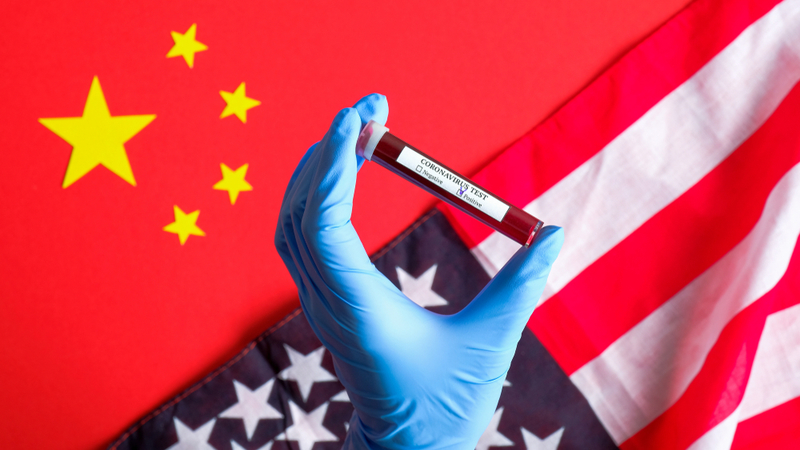Coronavirus has taught us that Australia can’t trust China – or the US
April 06 2020

By James Laurenceson and Elena Collinson
Note: This article appeared in Network 10’s 10 daily on April 6 2020.
There are some facts about COVID-19’s devastating global spread that cannot be pretended away.
Viral outbreaks can happen anywhere, including in Australia, but managing them responsibly and effectively requires timely and trusted information. And China’s system of governance, where the political priorities of the Chinese Communist Party are placed above all else, has made the crisis worse, not only for China but for countries like Australia too.
Making this point starkly, researchers at the University of Southampton estimated that if Chinese authorities had responded with interventions like early detection, isolation of the infected and travel restrictions even one week earlier, the number of COVID-19 cases in China could have been reduced by 66 percent by the end of February. This makes actions like silencing whistleblower Wuhan doctor, Li Wenliang, who subsequently lost his life to COVID-19, along with others who tried to warn of the outbreak, even more scandalous.
Beijing frequently tells Canberra that it should work harder in ‘enhancing mutual trust’. But ‘enhancing mutual trust’ is a two-way street.
The cover-up in the early days of COVID-19 is just one example of the Chinese Communist Party needing to take a hard look in the mirror and recognise that it also contributes to bilateral mistrust in ways that cost Australians dearly.
In order to protect Australian public health and the local economy, Canberra has to take the shortcomings of the Chinese system into account, whether this angers China or not.
The reassuring news for Australians is that Canberra did just that. On February 1 the Australian government closed the borders to overseas arrivals who had been in mainland China during the past 14 days, the incubation period for COVID-19. This cut the numbers of Chinese tourists overnight, with Chinese students also significantly affected.
While much of the world has now pulled up their drawbridges, Australia moved well in advance. This prompted a diplomatic dressing down from the Chinese embassy, which expressed ‘deep regret’ at Australia’s ‘overreaction’.
Although Prime Minister Scott Morrison and his senior ministers didn’t say it out loud, it’s likely that the government took quick action because health experts here had serious doubts about the quality of COVID-19 data coming out of China. Dubious Chinese data is, after all, nothing particularly new.
But there’s a second fact that Australia also needs to learn from. And this one is going to be harder.
Criticising China and responding to threats from there comes quite naturally for plenty of Australian politicians and commentators.
Yet what isn’t acknowledged to nearly the same extent is that Australia’s COVID-19 crisis can’t just be blamed on China, despite originating from there.
The Australian government’s own data says that about 80 percent of COVID-19 cases in Australia can be traced to an overseas source. And of these, the three main culprits are Europe, the Americas and cruise ships. Indeed, the prime minister told 2GB, ‘The country which has actually been responsible for a large amount of these [cases] has actually been the United States’.
The United States, our security ally, now has nearly four times as many confirmed cases as China, although official Chinese data is almost certainly understated.
The Australian government assumed it could trust the US to obtain and share accurate data about the COVID-19 spread there, and put in place necessary public health measures. And so it left the borders open to travellers from the US.
Sadly, this assumption has proven wrong.
In late January, President Donald Trump said, ‘We have it totally under control…It’s going to be just fine’. Even by the middle of last month, Trump awarded himself a 10 out of 10 for his handling of the COVID-19 challenge. And it wasn’t just Trump. A Gallup poll in late March recorded 60 percent American public approval for the president’s handling of COVID-19, compared with 38 against.
While opinion polls generally show some jump in support for a president dealing with a crisis during its early days, it still suggests that facts are becoming less important in driving American public policy. Rather, partisan political ideologies are what counts.
For example, the same Gallup poll showed a staggering 94 percent of Republicans approved of Trump’s response, against just 27 percent of Democrats.
Concerning too, are reports (which the US denies) of America diverting essential medical supplies from partners France and Germany -- engaging in acts of ‘modern piracy’, to quote Germany’s interior minister -- as well as blocking them to its neighbour, Canada.
Australia should not expect to be treated any differently.
Australia has long recognised that the Chinese Communist Party needs to be treated cautiously. America’s democracy cannot be placed in the same basket. But what COVID-19 clearly shows is that Australia cannot simply assume that America’s political system will see the right thing done.
To be sure, Australia cannot, and should not, walk away from either China or the US. But it should be unsentimental in its approach. A COVID-19 vaccine, as well as a clear-eyed foreign policy, are what Australia will need in 2021 and beyond.
Professor James Laurenceson is Director of the Australia-China Relations Institute at the University of Technology Sydney.
Elena Collinson is a senior researcher at the Australia-China Relations Institute, University of Technology Sydney.


